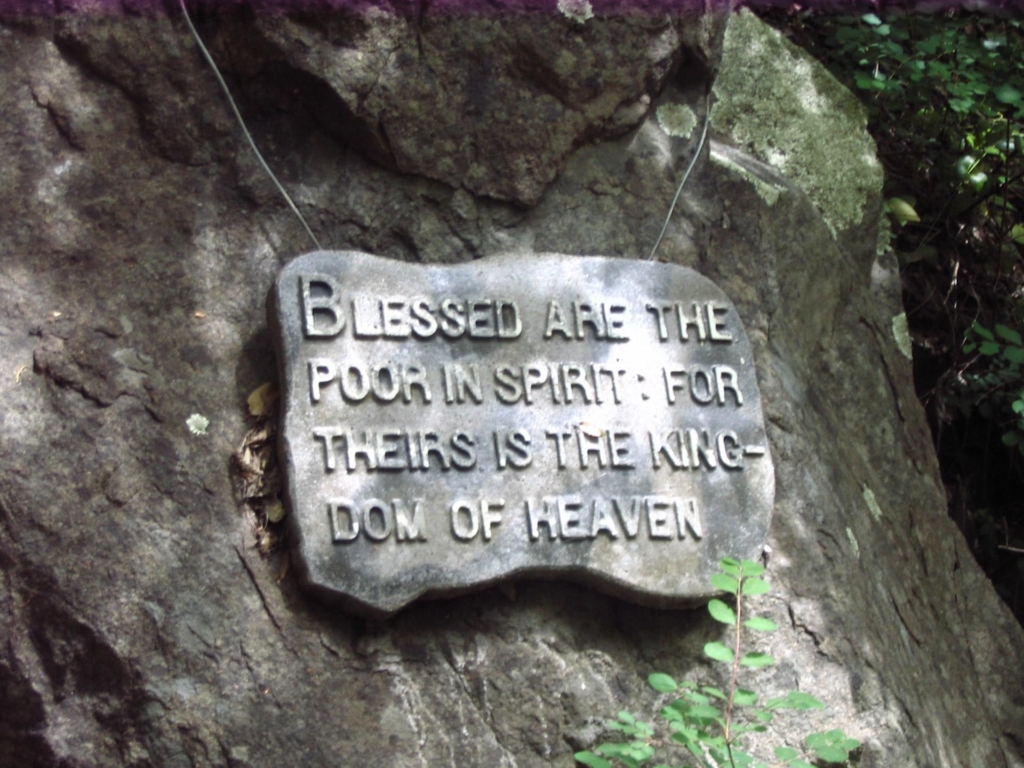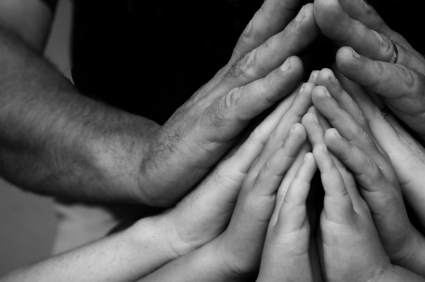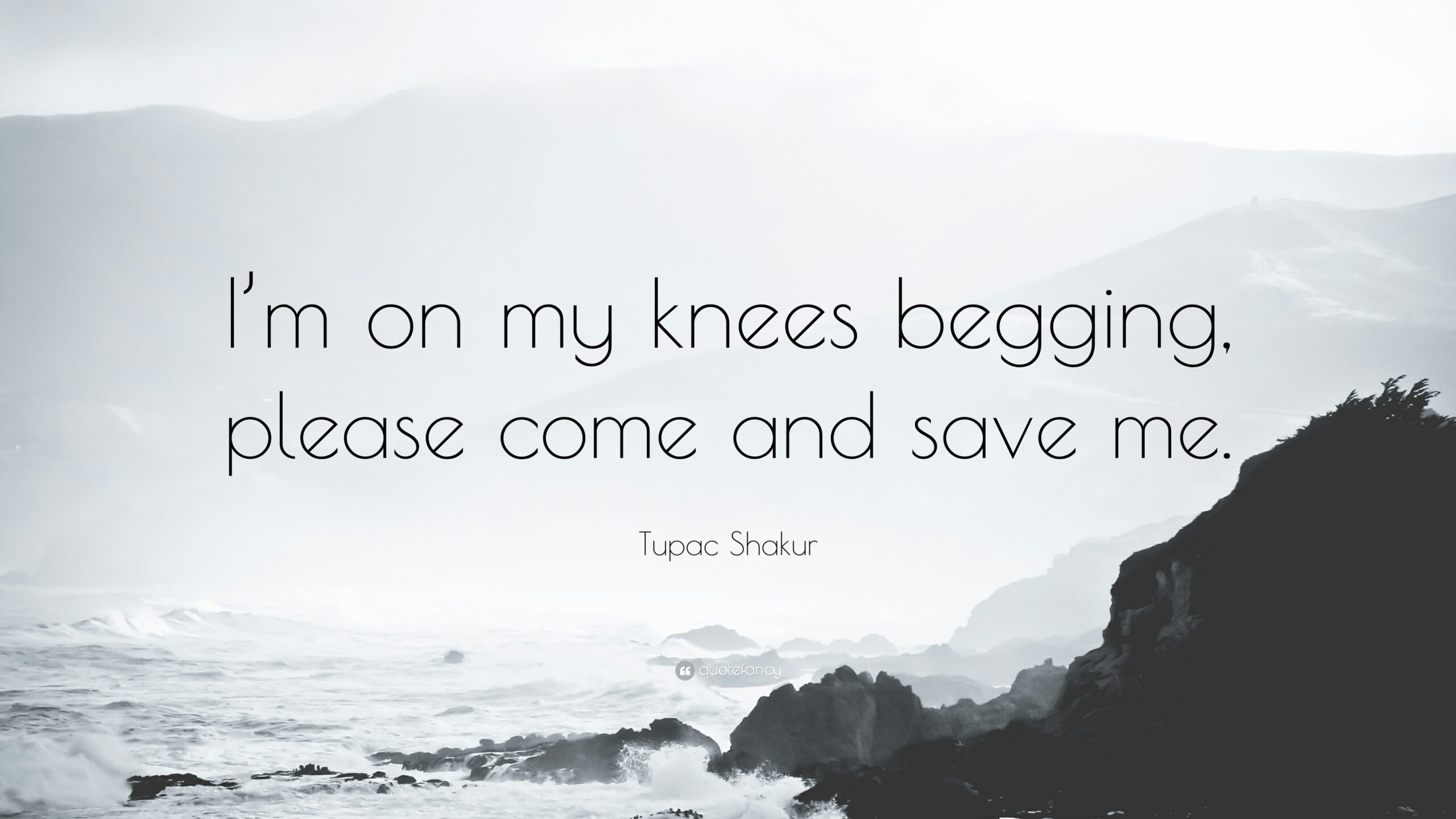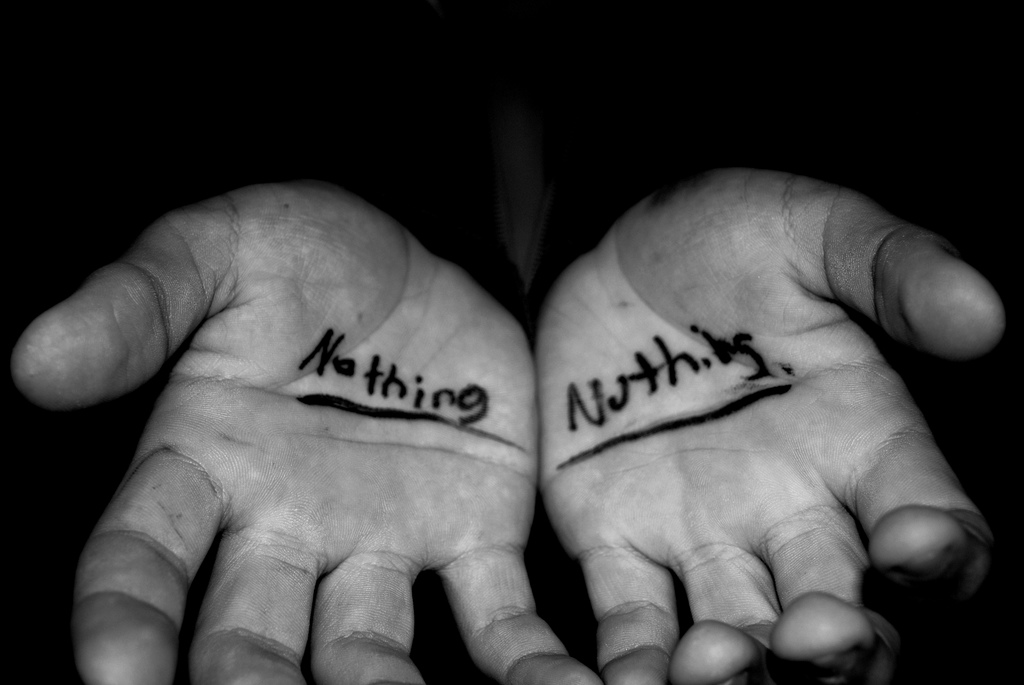Lent Devotional – Thurs, Feb 25: KINGDOM
In these Beatitudes, the kingdom is a place of belonging. In this sense, it becomes an expansive community. Perhaps it will manifest here on earth as well as in heaven.
As Christ tells us, the blessed become part of the kingdom. They have citizenship within it. Or if one thinks of kingdom as family, the blessed have been adopted into it.
Of course, all human families and communities come with their own complexity. Belonging to the same circle of spiritual connection doesn’t guarantee consensus. We may or may not get along. Work and commitment are required, on our part, to belong to each other within this kingdom that has embraced all of us. We must also believe that God will continue to help us belong to each other; we’re not always good at doing it by ourselves.
Yet the other aspect of the grace of these Beatitudes and God’s kingdom, is that we cannot earn our participation in it. We have been invited. Yet we also have free will. We have the choice to turn away, or to say yes. — Rev Gail
Meditations:
The Kingdom of Heaven is not a place, but a state of mind. — John Burroughs
The outer kingdom is not our real home. The inner kingdom is our everything. —Marianne Williamson
Jesus made clear that the Kingdom of God is organic and not organizational. It grows like a seed and it works like leaven: secretly, invisibly, surprisingly, and irresistibly. — Os Guinness
A little kingdom I possess, where thoughts and feelings dwell; And very hard the task I find of governing it well. — Louisa May Alcott
I believe in Liberty for all men: the space to stretch their arms and their souls, the right to breathe and the right to vote, the freedom to choose their friends, enjoy the sunshine, and ride on the railroads, uncursed by color; thinking, dreaming, working as they will in a kingdom of beauty and love. — W. E. B. Du Bois
Our ambition should be to rule ourselves, the true kingdom for each one of us; and true progress is to know more, and be more, and to do more. — Oscar Wilde
Challenge or Question: Within which of the communities or circles of belonging to whom you connect — family or extended kin-group, friend network, affinity groups, clubs, teams, schools, workplaces, nonprofit organizations or institutions — do you experience an expression of the kingdom of God? What does it look like in these scenarios?
Lenten Devotional – Wed, Feb 24: THEIRS
Ironically, this English word is translated as a possessive noun: theirs. We read ‘theirs is the kingdom’ as if the recipients, now blessed, have been handed a reward. It sounds like the prize or treasure has been given to them. They own it, keep it, possess it.
In fact, Greek translators of the Gospel of Matthew emphasize that ‘they’ are actually the ones under the authority of the kingdom of heaven. Powell translates it as, ‘heaven rules them.’ They belong to the kingdom. Rather than being those who possess something, they are possessions of heaven!
By default, the blessed are part of heaven’s community. That includes you and me. We have been claimed by God.
God calls you God’s own. Can you feel it? God has marked you and asked you to be part of God’s realm. How has that invitation shown up in your life? And what has been your answer? — Rev Gail
Meditations:
You don’t choose your family. They are God’s gift to you, as you are to them. — Desmond Tutu
You can kiss your family and friends goodbye and put miles between you, but at the same time you carry them with you in your heart, your mind, your stomach, because you do not just live in a world but a world lives in you. — Frederick Buechner
Challenge or Question: To whom do you belong? To whom do you want to belong? And how is that belonging signified? By blood? By name? Affiliation? Affinity? Accredidation? Employment? Oath? Vow? Covenant? Treaty? Certification? Promise? Or just showing up?
Lenten Devotional – Tue, Feb 23: SPIRIT
‘Spirit’ refers to more than feelings, thoughts, or emotions. It belongs in the realm of faith. It may be experienced as the capacity to hope and endure. It may be expressed as a sense of connection to God and heaven (or your own language for holy Love). It has an existential element, yet its implications are tangible: they’re life and death.
As humans, we have all been dispossessed. Perhaps not materially or economically, yet something has slipped, broken. As the ‘poor in spirit’, we’re looking at ourselves in a different, startled way: with new eyes and a hurting heart. One commentator states, ‘…they trust in God more profoundly than most because they have no hope in this world.’ Or perhaps we could say, with the odds stacked against us, the ‘poor in spirit’ shouldn’t have any reason to hope, yet we embody resilience, and find hope anyway.
Scholars argue that being ‘poor in spirit’ is not equated with despair or giving up. In fact, it means the opposite. (Don’t worry, there’s a different Beatitude for those who are hurting in other ways.) A.W. Tozer says “They have broken the yoke of the oppressor; and this they have done not by fighting but by surrendering.” Rather than being the possessors, we have given ourselves into Someone’s possession. After all, we have nothing left except God’s unfailing promise and presence. That holy love, a wellspring more abundant than our limited spiritual reserves, becomes our source of strength and renewal.
The first blessing includes, too, those who admit to depression and disillusionment. They struggle, and try to hold on, even when the promise of God’s promise seems empty or far away. Out of reach. Even when they can’t feel God’s love or find God’s justice.
One powerful example of the ‘poor in spirit’ tends to be people who have gone through twelve-step programs. They’ve hit the bottom. Lost everything except their lives. Sometimes lost themselves. Yet they don’t give up. They give over. The blessing of being the ‘poor in spirit’ doesn’t promise to be easy: ask anyone who is staying sober and giving themselves into the care of a Higher Power every day, step by step.
They endure anyway. Refuse to give up. Keep trying. They have nothing left, except the hope of love itself, even when that love doesn’t seem to be available or accessible.
Be honest with yourself as you read this. What would be required for you to cry out to God? To turn to God? What brings you, as we explored in yesterday’s posting, to your knees? What would cause you to acknowledge that you cannot continue alone, or cope by yourself? That you need a Love larger than yourself? When have you been at such a turning point, if ever, that you cried out for God’s love, healing, hope, justice, mercy or support? Who in your life exemplifies this condition? — Rev Gail
Meditations:
God, grant me the serenity
To accept the things I cannot change;
Courage to change the things I can;
and wisdom to know the difference.
— Attributed to Reinhold Niebuhr
We must become so alone, so utterly alone, that we withdraw into our innermost self. It is a way of bitter suffering. But then our solitude is overcome, we are no longer alone, for we find that our innermost self is the spirit, that it is God, the indivisible. And suddenly we find ourselves in the midst of the world, yet undisturbed by its multiplicity, for our innermost soul we know ourselves to be one with all being. ― Hermann Hesse
My religion consists of a humble admiration of the illimitable superior spirit who reveals …self in the slight details we are able to perceive with our frail and feeble mind. ― Albert Einstein
The first peace, which is the most important, is that which comes within the souls of people when they realize their relationship, their oneness with the universe and all its powers, and when they realize at the center of the universe dwells the Great Spirit, and that its center is really everywhere, it is within each of us. ― Black Elk
Challenge or Question: Name at least one thing that gave you hope today. Acknowledge it. Give thanks for it.
Lenten Devotional – Mon, Feb 22: POOR
‘Poor’ in this Beatitude is an alternate form of poverty. In the Gospel of Luke, Christ’s blessing names the economic poor. In Matthew, Christ’s blessing is extended to the ‘poor in spirit’ and has a spiritual, faith-based element to it.
Let us be clear, this Beatitude shouldn’t be used to romanticize or valorize poverty. Or to justify the conditions that bring about poverty and disenfranchisement.
We should also acknowledge that the Beatitude does not mean that people who live in material poverty do not need or want resources. Nor does it mean people are happy, due to their economic poverty, or because life is simpler for them. That, too, is a fallacy.
This spiritual way of being ‘poor’ recognizes that many people live in conditions and systems beyond their choice or control. Throughout scripture, God claims such dispossessed people as God’s own.
The scholar William Barclay traces the evolution of what poverty means in Hebrew scriptures and then in the Gospels. “These words in Hebrew underwent a four-stage development of meaning (i) They began by meaning poor (ii) They went on to mean, because poor, therefore having no influence, or power, or help, or prestige (iii) they went on to mean, because having no influence, therefore down-trodden and oppressed by men (iv) Finally, they came to describe the man who, because he has no earthly resources whatever, puts his whole trust in God.”
This spiritual form of poverty can be an inward loss with emotional, psychological, and spiritual implications.
The original Greek used by Matthew does not select the word penes, which refers to poor people who Barclay says “have to work for a living, people serving their own needs with their own hands”. Instead, the author of Matthew used ptochos, which Barclay describes as “those who live in absolute and abject poverty: poverty which is beaten to its knees.”
Now imagine the spiritual equivalent of such poverty. What would bring you to your knees?
In addition to having no earthly resources, ‘poor in spirit’ can also mean lacking internal resources: an inward loss with emotional, psychological, and spiritual implications. When we become desperate, reach some breaking point, or acknowledge our personal imperfections, especially, our inherent human messy-ness, then we also have the chance to relinquish our illusions of control and place ourselves into God’s keeping.
Placing ourselves into God’s care — God’s hands — doesn’t absolve people of acting ethically or being partners in our own destinies. Empowerment and personal agency aren’t extinguished when we turn our lives over to God. Yet this Beatitude presumes we have experience major limitations of one sort of another. Free will, nevertheless, remains ours.
As Martha Stortz writes, “It is a blessing, not upon the man who has been distinguished for this virtue or remarkable for that excellence, but upon him whose chief characteristic is that he confesses his own sad deficiencies. … grace is indeed casting its eye first, not upon purity, but upon poverty; not upon those who show mercy, but upon those who need mercy; not upon those who are called the children of God, but upon those who cry, “We are not worthy to be called your children.””
Theologian Father Jacques Philippe adds, “Poverty means first of all being truthful toward God: realizing our radical limitations as creatures, our total dependence on his love … who … badly need his mercy and pardon so much.” The blessing is given to us anyway, because God’s measure of our worth, our value, is different than the world’s metrics.
Thus this first Beatitude isn’t intended to shame us. In fact, it lifts shame from us. Maxie Dunnan and Kimberly Dunnan Reisman tell us “…the poor in spirit do not confuse humility with low self-esteem or self-pity. They know they are loved, accepted, and forgiven.” Perhaps we don’t deserve — or cannot earn — the grace that is offered: the blessing that we belong to God’s kingdom.
Yet the blessing has already been bestowed. The offer has already been made. — Rev Gail
Meditations:
The hunger for love is much more difficult to remove than the hunger for bread. — St. Mother Teresa
Poverty is the worst form of violence. — Mahatma Gandhi
Poverty is like punishment for a crime you didn’t commit. — Eli Khamarov
Poverty is the parent of revolution and crime. — Aristotle
An imbalance between rich and poor is the oldest and most fatal ailment of all republics. — Plutarch
Challenge or Question: What controls, calls, or tempts you? What becomes an idol in your life, in ways that disrupt your healthiest and holiest relationship to yourself, God and other people? Look, for instance, at how you spend your money and/or time. Often you’ll notice your passions — both healthy and out-of-balance — within the budget of your finances and your daily schedule. Can you redirect your time, attention, and/or resources away from one aspect of your life that may not be healthy, toward something more sustainable?
Feb 21 Worship: First Sunday of Lent – Beatitudes starting with Poor in Spirit
Full Service
Message: Blessed



